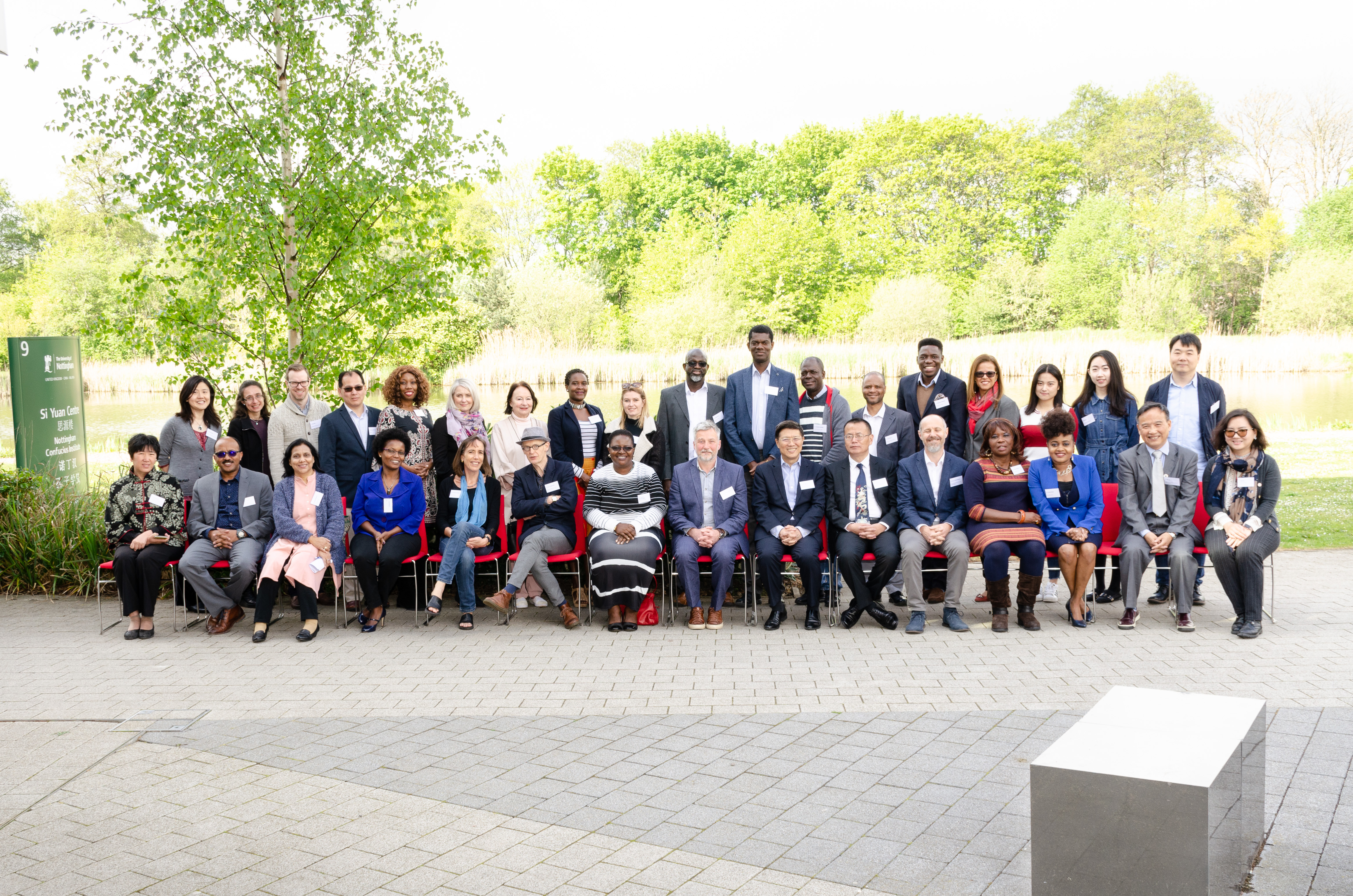
May 29, 2019, by Lexi Earl
Global-local knowledge systems for innovation and entrepreneurship in the developing world: An international workshop in Nottingham, 2-3 May 2019
This post was written by Dr Bin Wu and Dr Peter Noy.
About 2 billion people (two thirds of the population) in the developing world live on about 500 million small farms, defined as plots of land smaller than 2 hectares. Smallholder farmers are “knowledge-rich, but economically poor” and there is a significant gap in understanding how local knowledge might shape innovation. As a result, smallholder farmers are often excluded from the current system of knowledge exchange, leading to missing or inadequate contributions of local knowledge in many global research and development projects. Dr Bin Wu, in collaboration with the Future Food Beacon, Haydn Green Institute for Innovation and Entrepreneurship (HGI) and the African Diaspora Academic Network – UK (ADAN-UK), put together an international workshop for communication, interaction and cooperation between grassroots innovators and researchers/professionals/change agents, with the vision of starting to address this knowledge gap.

The event was attended by more than 50 people from a wide range of backgrounds, including international participation of eight invited speakers from five countries (China, Bangladesh, Ethiopia, Kenya and Zimbabwe); engagement with African diasporas from both academia (5 delegates from ADAN-UK) and local communities in Nottingham; other stakeholders from across the sector (universities, government and non-government agencies) and across disciplinary boundaries (agriculture, economics, education, sociology, political and management sciences); and participation and contribution from some of the fantastic student entrepreneurs at UoN, who have been working in Africa as part of their training and development.

Early on the first day of the workshop there was a buzz in the room. The international guests had arrived and with them they brought excitement and energy. There were some reunions, but most of the interactions were new ones and a sense of discovery was tangible. The main objectives of the workshop were to address two questions: 1) What are the innovation challenges and opportunities for smallholder farmers? 2) How can a global university like UoN work together with multiple stakeholders to support local innovation and entrepreneurship to empower smallholder farmers? The first session kicked off with introductions from the organising parties, highlighting the contribution that Nottingham can provide to food security research and international collaboration. Nothing could stop the continued conversations and networking that began immediately, even the taking of photographs!

Over the course of the first day attendees heard incredible stories of smallholder farmers across the globe, from Bangladesh to China to Ethiopia to Zimbabwe. Each speaker exuded passion through their stories and brought with them key challenges that each setting faces (for example, female empowerment, cooperative initiatives, poor infrastructure). Just before lunch the room was really lit up by Florence Mtambanengwe, who spoke of Farmer Learning Centres that she has been involved in setting up in Zimbabwe. These organisations provide local farmers with a place to go to learn about the science behind farming, exchange knowledge and experiment with new technologies. This concept really grabbed the audience and they were full of questions.

The afternoon session brought about the first opportunity for group discussions and the groups sought to define their key challenges for smallholder farmers. Working in groups of about 8, there were wide-ranging discussions covering market exploitation, political establishments, value of goods, the climate crisis, post-harvest processing and losses, in-country infrastructure, hunger, technology adoption, knowledge exchange and education. The challenges facing smallholder farmers are vast but their conversations were positive: What progress can we make? How can we help to change these problems? What good experiences can we share? How can we support entrepreneurship and innovation in smallholder farmer communities?

The second day arrived, and things picked up from day one. Attendees heard about an NGO-led training course for rural entrepreneurs in China, university engagement for entrepreneurship in coastal Kenya, and diaspora links for agricultural innovation in home communities in Africa. One of the highlights of the second day were two HGI supported student entrepreneur projects in rural Africa which have won top awards at national (UK Enactus Competition) or university (VC Award in Ingenuity 19 Competition) levels. In particular, Tabitha Wacera told her story, from being a girl in Kenya who had to fetch water every day to starting a business that provides sustainable water for Kenyan communities through solar-based water pumps. This story resonated with many in the room and really demonstrated the change this generation can make. The buzz continued and the delegates assembled back into groups to discuss actions to build upon for future activities. By the end of the event there was a real feeling of opportunity, and that the start of solutions were just being born.

We would like to thank all delegates and in particular those invited speakers and ADAN-UK members, who made the event so successful. Hopefully this can initiate a “triangular relationship” between global universities (UoN), local community groups (African Diasporas) and international partners via staff and students’ community engagement on sustainable development goals in general, and sustainable agricultural innovation and food security in particular.
No comments yet, fill out a comment to be the first

Leave a Reply